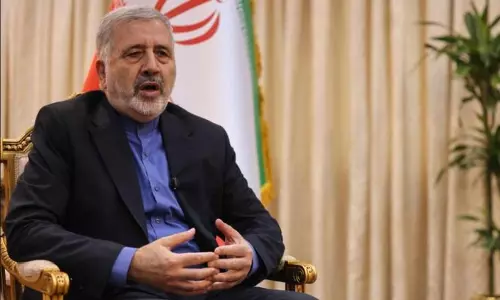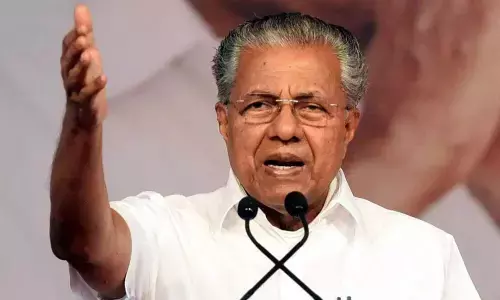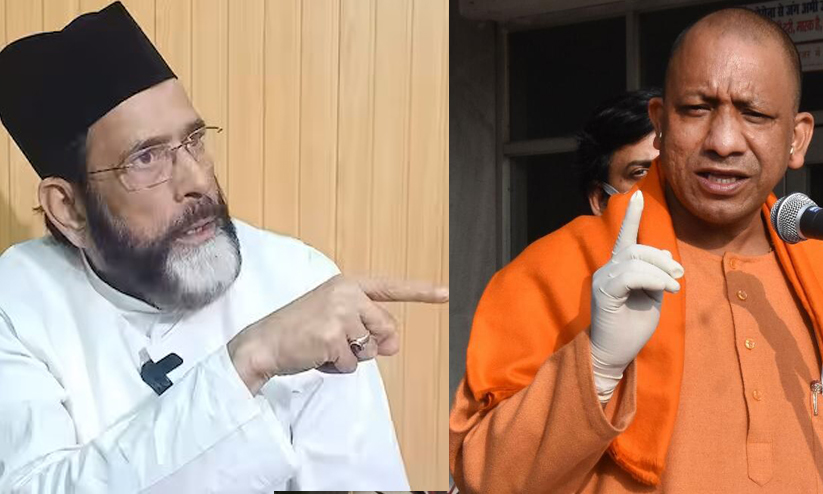
UP court praises religious leaders in power, like CM Yogi while hearing communal riot case
text_fieldsLucknow: CM Yogi Adityanath came in for praise from an expected quarter, a law court for being a religious leader in power. The Additional District and Sessions court showered the praise on Yogi for being chief of a Hindu religious sect when in office as chief minister while implicating a leader of a Muslim sect in a riot case.
The court made this observation while invoking serious charges under various sections of the Indian Penal Code (IPC) against Maulana Tauqeer Raza Khan, a prominent cleric belonging to the Barelvi sect, accusing him of being the "mastermind" behind the 2010 communal violence.
Additional District and Sessions Judge Ravi Kumar Diwakar, who is hearing the 2010 Bareilly riot case now, had also hit the headlines when he ordered a court-monitored survey of the Gyanvapi mosque complex over a suit filed by five women seeking the right to worship in the disputed shrine during his tenure in Varanasi court in 2022.
Judge Ravi Kumar Diwakar, while emphasizing the qualities of religious leaders as being those of 'sacrifice and dedication,' praised Uttar Pradesh Chief Minister Yogi Adityanath for embodying these qualities. Simultaneously, he criticized Maulana Tauqeer Raza Khan for living in luxury, provoking members of his community, and disrupting law and order, despite his association with the highly reputed family of Dargah Aala Hazrat in Bareilly.
Judge Ravi Kumar also emphasized the need for those in positions of power to be religious individuals and cited Chief Minister Yogi Adityanath as an example.
The 2010 Bareilly riot case, currently being heard by Additional District and Session Judge Ravi Kumar Diwakar, took an intriguing turn as the court drew parallels between religious leadership and governance. The court referred to the concept of the 'Philosopher King' proposed by Plato in his book, Republic, suggesting that if a religious person heads the state, positive outcomes can be expected.
The court specifically pointed to Chief Minister Yogi Adityanath, the peethadheeshwar of Siddha Peeth Gorkhnath Temple, as an exemplar of the concept, stating that his leadership has validated the idea of a religious person in a position of power.
However, the court argued that Maulana Tauqeer Raza Khan's alleged activities, contrary to this concept, led to disruptions in law and order, as witnessed in the 2010 riots.
In its order, the Bareilly court directed the summoning of Maulana Tauqeer Raza Khan, accusing him of delivering a provocative speech that allegedly incited violence within the Muslim community. The court expressed concern over the exclusion of his name from the chargesheet, suggesting a failure by law enforcement, administrative officials, and government authorities to perform their duties.
Government counsel Digambar Patel revealed that the court criticized the apparent lack of adherence to rules during the investigation and suggested deliberate support for the cleric who allegedly incited the riots.
The court further emphasized that key officials at the time, including the Divisional Commissioner, District Magistrate, Senior Superintendent of Police, Deputy General of Police, and Inspector General of Police, did not act legally and supported Maulana Tauqeer Raza at the government's behest.
The court's order also urged Chief Minister Yogi Adityanath to take necessary action in response to the alleged lapses in following legal procedures and supporting the cleric. It highlighted the significant influence Maulana Tauqeer Raza Khan holds in Muslim society due to his position as a religious leader and President of the Islamic Missionary Congress (IMC).
Additionally, the court touched upon the prevailing atmosphere of fear in society, referencing a threatening letter received during the Gyanvapi mosque case. Unidentified individuals are facing charges for sending a letter with alleged "objectionable comments" to the judge handling the case.
In March 2010, clashes erupted stemming from a disagreement over the route of a Barawafat procession. The ensuing unrest resulted in numerous injuries and extensive damage to vehicles and shops, prompting authorities to impose a curfew in the affected city. Subsequently, police apprehended Tauqeer Raza Khan and several others in connection with the incident. However, despite their arrest, Tauqeer Raza Khan was not included in the chargesheet filed by the police.
According to the prosecution, a case was registered against 178 identified individuals and several others whose identities remained unknown at the Premnagar police station. The police subsequently filed charges against a total of 197 individuals in relation to the incident.
The Bareilly court's decision to take suo motu cognizance and summon Maulana Tauqeer Raza Khan sets the stage for a crucial hearing scheduled for March 11.






















